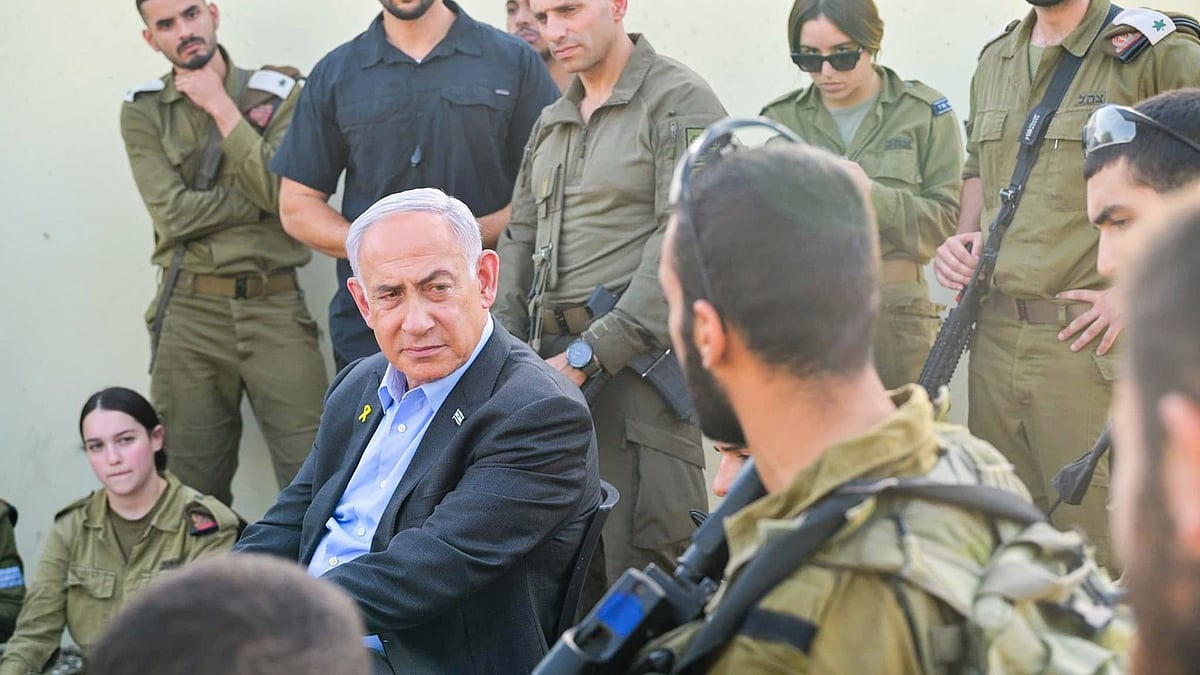Netanyahu's strike in Qatar backfires, strains ceasefire talks and global ties
The attack has enraged Qatar, a key US ally and a central mediator throughout the nearly two-year Gaza conflict

Israeli Prime Minister Benjamin Netanyahu's decision to authorise an airstrike targeting Hamas leaders in Qatar this week has sparked diplomatic fallout and may have derailed ongoing ceasefire efforts, with growing signs that the mission failed.
The operation aimed to eliminate senior exiled Hamas leaders and advance Netanyahu’s promise of “total victory” over the group responsible for the 7 October 2023 attack on Israel. Instead, Hamas claims the intended targets survived, while the strike has further damaged Netanyahu’s global image amid rising criticism over the humanitarian crisis in Gaza.
The attack has enraged Qatar, a key United States ally and a central mediator throughout the nearly two-year-long Gaza conflict. It has also drawn condemnation across the Arab world and increased tension with Washington, placing the fate of the 20 remaining hostages in Gaza in further jeopardy.
Despite the blowback, Netanyahu remains defiant. Backed by his far-right coalition, his political standing appears secure in the short term, with no indication he plans to halt the war effort.
A missed strategic victory
The strike reportedly killed five lower-ranking Hamas members and a Qatari security guard. However, Hamas stated that the senior leadership survived a meeting discussing a new US ceasefire proposal. The group has yet to release evidence, and Qatar has not commented on their condition.
Harel Chorev, an expert on Arab affairs at Tel Aviv University, noted that the strike could have symbolically benefited Netanyahu had the leaders been killed.
“It's all very symbolic and it's definitely part of the thing which allows Netanyahu at a certain point to say We won, we killed them all,’” he said.

Although Hamas’ leadership inside Gaza has largely been eliminated, Netanyahu’s broader goal of destroying the organisation appears increasingly out of reach. This has made it more difficult to pursue a ceasefire deal, especially under pressure from far-right coalition members who oppose any concessions and threaten to collapse the government if the military effort doesn’t escalate.
A successful operation in Qatar could have bolstered Netanyahu politically by appeasing hardliners, even though it would have targeted the very individuals involved in ceasefire talks.
Breaking off with Qatar
Israel reportedly had the capacity to target Hamas leaders in Doha earlier but refrained to maintain open diplomatic channels. Qatar has played a central role in brokering two previous ceasefires, which led to the release of 148 hostages — including eight bodies — in exchange for thousands of Palestinian detainees. Israel’s military has rescued only eight hostages alive and recovered the bodies of 51.
While Israeli officials have criticised Qatar for not doing more to pressure Hamas, diplomatic ties remained intact — until this week.
“Israel, by the attack, notified the whole world that it gave up on the negotiations,” said Chorev. “They've decided to burn the channel with Qatar."
Qatar’s Prime Minister, Sheikh Mohammed bin Abdulrahman Al Thani, told reporters: “I don't think there's anything valid” in the ongoing negotiations. He did not declare an end to mediation but avoided committing to next steps.
On Thursday, Sheikh Mohammed accused Israel of abandoning the hostages. “Extremists that rule Israel today do not care about the hostages — otherwise, how do we justify the timing of this attack?” he told the UN Security Council.
Despite his remarks, he affirmed that Qatar was still open to resuming mediation. The next day, Sheikh Mohammed met US Secretary of State Marco Rubio in Washington. Rubio is expected to visit Israel soon as the Trump administration attempts to maintain its relationships with both nations.
Tensions rise with Washington
President Donald Trump, who has supported Israel since returning to office, expressed dissatisfaction over the strike. He stated he was “very unhappy” and assured Qatari officials such an attack would not happen again. However, he has not indicated any punitive response toward Netanyahu or suggested that Israel should alter its war strategy.
Netanyahu responded by doubling down, warning Hamas leaders that they could be targeted anywhere.
“There is no place where we cannot reach you,” he said on Thursday.
Gaza war pushes ahead
Despite the diplomatic backlash, Israel is pressing forward with its offensive, preparing for a large-scale operation in Gaza City. The military has called for the evacuation of roughly one million civilians in anticipation of a ground invasion.
“Netanyahu's government is adamant to go on with the military operation in Gaza,” said Gayil Talshir, a political analyst at Hebrew University in Jerusalem.
She added that only Trump might be able to redirect Israel’s current path by telling Netanyahu “enough is enough.”
Public opposition, but political stability
If Hamas leaders did survive and ceasefire negotiations collapse, Netanyahu risks alienating the approximately two-thirds of Israelis who, according to recent polls, want the war to end and the hostages brought home. However, this sentiment has so far not impacted Netanyahu’s hold on power.
“Netanyahu's future in the near term doesn't depend on the Israeli public,” said Yohanan Plesner, president of the Israel Democracy Institute. “It depends on his coalition,” which remains supportive of his military approach.
For hostage families, the failed strike has increased their anguish. Einav Zangauker, whose son Matan is being held in Gaza, expressed her fear following the attack.
“Why does the prime minister insist on blowing up every chance for a deal?” she asked, on the verge of tears. "Why?”
With inputs from agencies
Follow us on: Facebook, Twitter, Google News, Instagram
Join our official telegram channel (@nationalherald) and stay updated with the latest headlines
